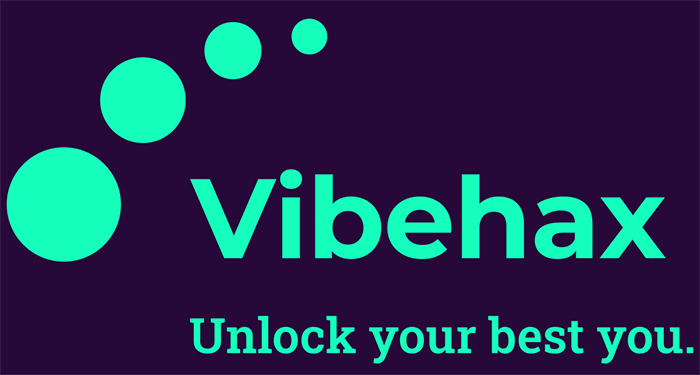Introduction: In our modern, media-saturated world, we are constantly surrounded by various forms of entertainment – from the music we listen to on our morning commute to the television shows we binge-watch in the evening. While we often view these activities as mere pastimes or sources of relaxation, their impact on our psyche runs much deeper. This essay explores how the entertainment we consume, including music, movies, television, and news programming, can profoundly influence our subconscious beliefs and, by extension, our overall happiness or lack thereof.
The Power of Media Consumption: The average person spends a significant portion of their waking hours engaged with some form of media. According to recent studies, adults spend an average of 11 hours per day interacting with media, including over 4 hours watching television and 3 hours on smartphones. This extensive exposure means that the content we consume has ample opportunity to shape our thoughts, beliefs, and emotions.
The Subconscious Mind and Media: Our subconscious mind is like a sponge, absorbing information and experiences constantly, even when we’re not actively paying attention. This part of our mind plays a crucial role in shaping our beliefs, attitudes, and behaviors. When we consume entertainment, we’re not just passing time; we’re feeding our subconscious mind with ideas, narratives, and emotional experiences that can have lasting effects.
- Music and Emotional Resonance: Music has a unique ability to evoke strong emotions and create lasting memories. The lyrics we listen to repeatedly can become internalized as beliefs or mantras. Uplifting music can boost mood and create positive associations, while music with negative or aggressive themes might contribute to feelings of anger or depression.
- Movies and Television: Shaping Worldviews: The stories we watch on screen often present simplified versions of reality that can influence our perceptions of the world. For example, constant exposure to violent content might lead to a subconscious belief that the world is more dangerous than it actually is. Conversely, inspiring stories of triumph over adversity can instill a sense of hope and resilience.
- News Programming: Framing Reality: News media plays a significant role in shaping our understanding of current events and societal issues. The way news is framed and presented can influence our perceptions of risk, our trust in institutions, and our overall outlook on the state of the world. Constant exposure to negative news can lead to heightened anxiety and a pessimistic worldview.
- Social Media: A Mirror and a Lens: While not traditional entertainment, social media consumes a large portion of many people’s daily media intake. The curated nature of social media can create unrealistic standards for comparison, potentially impacting self-esteem and life satisfaction.
The Cognitive Mechanisms at Play: Several psychological processes contribute to the way entertainment influences our subconscious and happiness:
- Mere Exposure Effect: Simply being repeatedly exposed to certain ideas or images can increase our liking for them, even without conscious awareness.
- Cultivation Theory: Prolonged exposure to media can lead us to believe that the real world mirrors what we see in the media, even when it doesn’t.
- Social Learning Theory: We often learn behaviors and attitudes by observing and imitating characters or personalities in media.
- Priming: Exposure to certain concepts in media can make related thoughts and behaviors more likely in real-life situations.
- Emotional Contagion: The emotions portrayed in media can be “contagious,” influencing our own emotional states.
Impact on Happiness and Well-being: The entertainment we consume can significantly impact our overall happiness and well-being in several ways:
- Mood Regulation: Media can be used as a tool for mood management, with people often choosing content that matches or improves their current emotional state.
- Life Satisfaction: Constant exposure to idealized lifestyles in media can lead to unrealistic expectations and decreased life satisfaction.
- Anxiety and Depression: Overconsumption of negative news or distressing content can contribute to increased anxiety and depressive symptoms.
- Self-esteem: Media portrayals of beauty, success, and relationships can impact self-esteem, especially when they set unrealistic standards.
- Worldview: The overall tone of the media we consume (optimistic vs. pessimistic, inclusive vs. divisive) can shape our general outlook on life and society.
Practical Implications and Strategies: Understanding the impact of entertainment on our subconscious and happiness empowers us to make more conscious choices about our media consumption:
- Media Diet Awareness: Pay attention to the type and quantity of media you consume, much like you would with food intake.
- Positive Content Selection: Actively choose uplifting, inspiring, or educational content that aligns with your values and goals.
- Critical Consumption: Develop media literacy skills to critically analyze the messages and representations in the content you consume.
- Balanced Exposure: Seek out diverse perspectives and balanced news sources to avoid a skewed worldview.
- Digital Detox: Regularly unplug from media to reconnect with real-world experiences and relationships.
- Mindful Engagement: Be present and conscious when consuming media, rather than using it as background noise or distraction.
Challenges and Considerations: While being mindful of our media consumption is important, it’s also crucial to maintain a balanced perspective. Entertainment can provide valuable benefits such as stress relief, social connection, and cultural enrichment. The goal is not to eliminate media consumption but to engage with it more consciously and intentionally.
Moreover, individual differences play a significant role in how entertainment affects us. Factors such as personality, life experiences, and current mental state all influence how we interpret and internalize media messages.
Conclusion: The entertainment we consume is far more than a passive backdrop to our lives. It is a powerful force that shapes our subconscious beliefs, attitudes, and overall sense of well-being. By recognizing the profound impact of music, movies, television, and news programming on our psyche, we can make more informed choices about our media diet.
Just as we are increasingly aware of the importance of physical nutrition, we must also consider our mental and emotional nutrition through the media we consume. By cultivating a balanced, positive, and mindful approach to entertainment, we can harness its power to enhance our happiness, broaden our perspectives, and enrich our lives.
In an age where we are constantly bombarded with information and entertainment options, the ability to curate our media intake thoughtfully is not just a skill, but a crucial aspect of self-care and personal development. By choosing our entertainment wisely, we can create a mental environment that nurtures positivity, growth, and genuine happiness.



